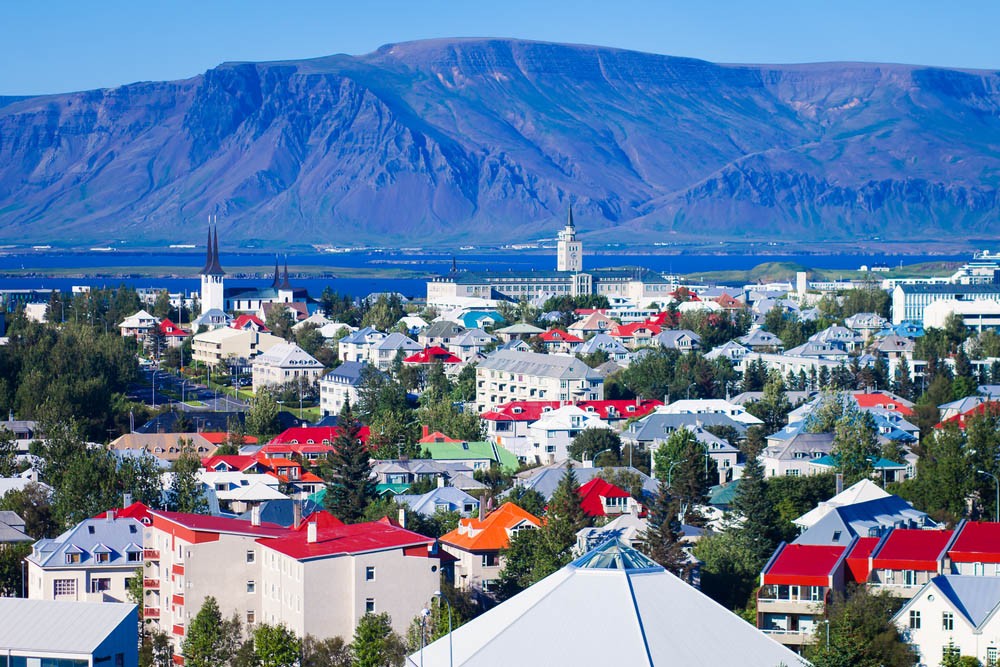Popular Reads
Top Results
Can't find what you're looking for?
View all search resultsPopular Reads
Top Results
Can't find what you're looking for?
View all search resultsFive things to know about Iceland
From its unique history to its passion for chess, books and football, here are five things to know about Iceland, which votes in legislative elections on Saturday.
Change text size
Gift Premium Articles
to Anyone
F
rom its unique history to its passion for chess, books and football, here are five things to know about Iceland, which votes in legislative elections on Saturday:
Crime
Contrary to the dark goings-on in Nordic noir literature, Iceland is a tranquil North Atlantic island of 335,000 people, where police patrol unarmed and homicides are extremely rare.
The country has on average only 1.8 homicides a year.
As a result, the brutal January 2017 murder of 20-year-old Birna Brjansdottir shook Iceland.
A Greenlandic sailor was convicted of strangling the young woman and throwing her body into the sea, and sentenced to 19 years in prison.
The sailor was also convicted of smuggling cannabis, of which Icelanders are major growers and the biggest consumers in the world (18.3 percent of population), according to UN figures from 2015.
Read also: How to plan the perfect northern lights viewing trip in Iceland
Chess passion
The Icelanders' passion for chess dates back to 1964 when legendary Soviet champion Mikhail Tal won the first big tournament organised in Reykjavik.
The 1972 chess world championship, held in the northernmost capital of the world, saw Bobby Fischer become the first American to win the title, defeating Russia's Boris Spassky in what was dubbed "the match of the century".
Fischer died in Iceland on January 17, 2008, at the age of 64.
Chess is now deeply rooted in Iceland's culture. At schools, cafes, at home and in offices, families, friends and colleagues play the game all year round.
Wrestling vs. football
"Glima" ("struggle" in Icelandic), a form of wrestling imported by the Vikings from Norway, is Iceland's national sport.
Portrayed in the Icelandic sagas as a display of masculinity, the purpose of the sport is to make an opponent fall by unbalancing him with his belt.
A little out of fashion now, there are just 300 or so practitioners of "glima", compared to 23,000 licenced footballers, a sport that has taken the country by storm.
In the Euro 2016 championships, football minnows Iceland became a phenomenon by making it to the quarter-finals and pleasing crowds with their hand-clapping, Viking-inspired chant.
And in October, the country became the smallest ever nation to qualify for the 2018 World Cup finals in Russia.
Read also: Learn about volcanoes in Iceland's Lava museum
'City of Literature'
Halldor Laxness is the only Icelander to be honoured with the Nobel Literature Prize, in 1955, but in Iceland it is said that every inhabitant of this nation will publish at least one book in their life.
Their passion for books dates back to the Icelandic sagas, which recount tales of ancient family history.
The statistics are inspiring: Iceland publishes more than 1,600 books every year, an astonishingly high number per capita that would be the equivalent of 300,000 new books in France.
Iceland offers a great network of public libraries and Reykjavik has been the designated "City of Literature" by UNESCO.
Killing Basques
In 2015, Iceland repealed a 400-year-old law that allowed the killing of Spaniards from the Basque region as soon as they set foot in the country.
The law dated back to 1615 when 32 Basques on a whaling mission were massacred due to tensions with the people in the northern Icelandic peninsula of Westfjords.
According to local testimonies, the Basque whalers had been unprepared for the rough Nordic winter and stole food, which triggered a conflict with the locals.











